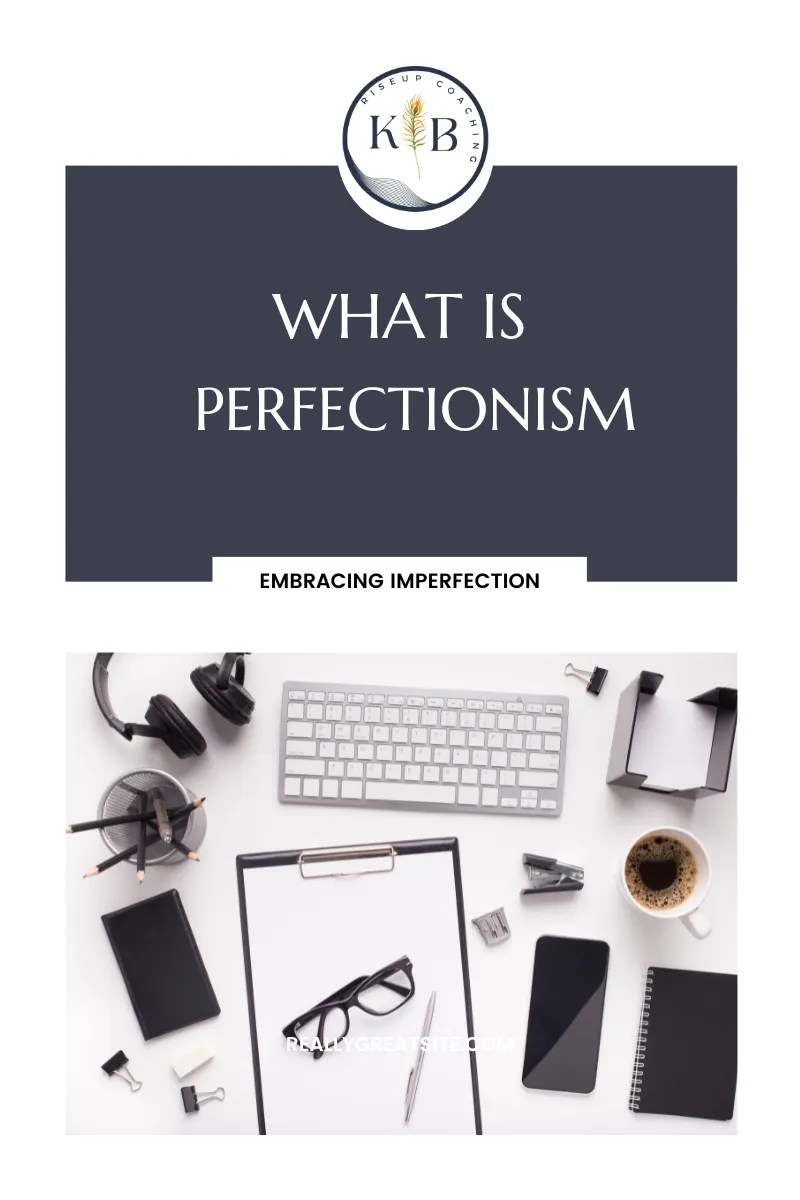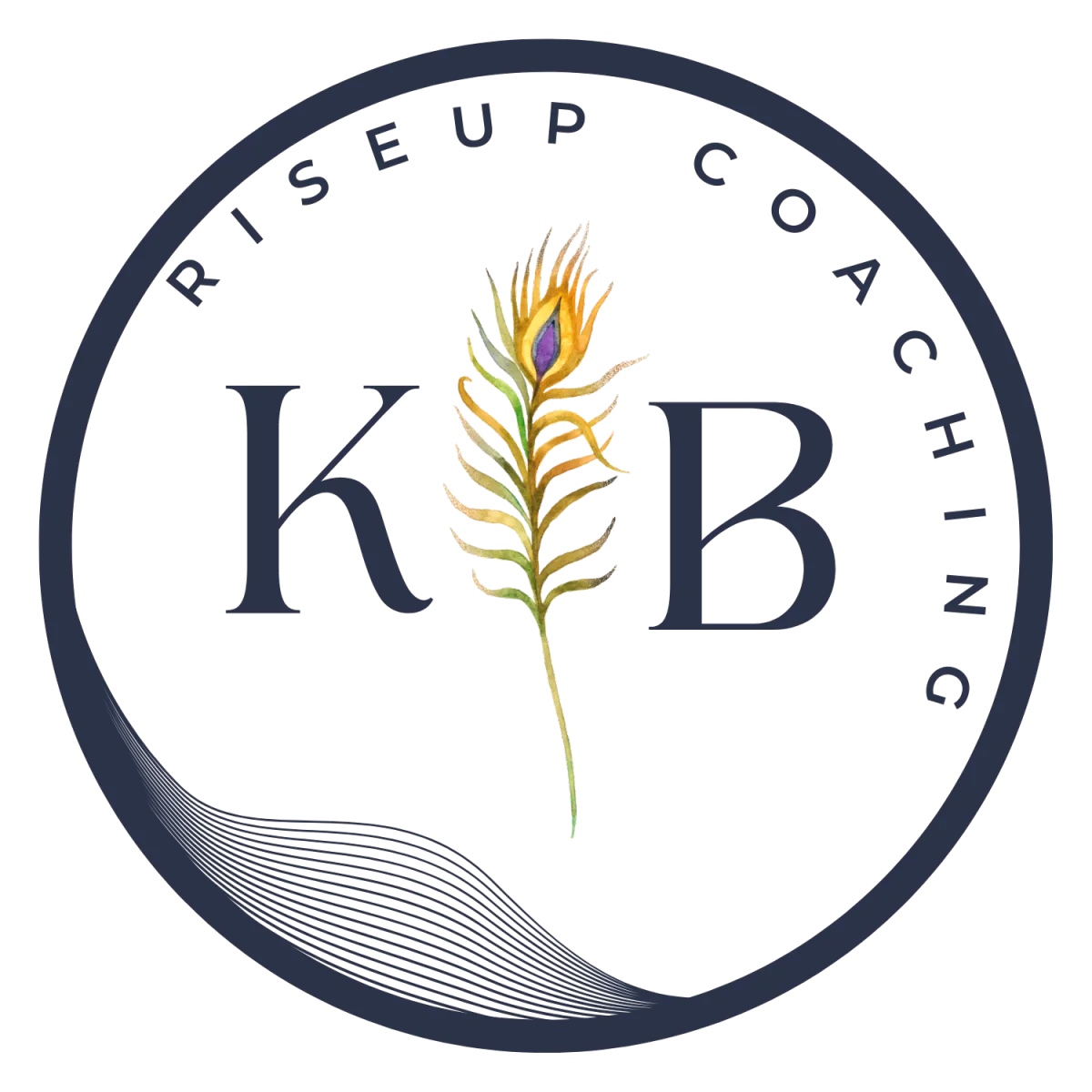

Embracing Imperfection: Overcoming Perfectionism and Finding Fulfillment | RiseUP Coaching Blog
Shifting Perspectives: Embracing Imperfection
Do you find yourself agonizing over every detail, never feeling like something is quite good enough?
Does the constant pursuit of perfection leave you exhausted and dissatisfied? If so, you’re not alone. Many of us have fallen into the perfectionism trap.
At its core, perfectionism is the belief that we must be flawless to be accepted and valued.

We impose impossible exacting standards on ourselves and become overly critical of any perceived shortcomings or mistakes. The quest for perfection permeates every area of life—from our appearances to our work, to our relationships.
This relentless drive for perfection may seem noble at first, but it often backfires. Perfectionism can sap creativity, diminish self-esteem, and take a serious toll on mental health. When we can never measure up to our own unrealistic expectations, we end up filled with constant self-criticism and anxiety.
The truth is, perfection is an illusion.
Embracing this truth is the first step to freedom. With greater self-compassion, we can silence that inner critic. By focusing on progress over perfection, we nurture growth. And by overcoming the fear of failure and judgment, we open ourselves to new possibilities.
In this post, we’ll explore the power of embracing imperfection on our journeys towards becoming our best selves—though not perfect selves. There is beauty, wisdom, and strength to be found in our perfectly imperfect humanity. Are you ready to let go of chasing perfection and embrace meaningful growth instead?
What is Perfectionism?

Perfectionism is defined as a tendency to hold oneself to unrealistic and unattainable standards. Perfectionists have an intense need to avoid failure and view anything less than perfect as unacceptable.
There are different forms of perfectionism:
Self-oriented perfectionism - Exacting standards and rigid expectations for oneself
Socially prescribed perfectionism - Believing others have unrealistic expectations of you
Other-oriented perfectionism - Imposing high standards on others
Common perfectionist behaviors include:
Procrastination and delaying tasks out of fear of failure
Overpreparing excessively before starting something new
- Extreme self-criticism and difficulty taking feedback
- Expending excessive time and effort on tasks to ensure they are perfect
- Unwillingness to delegate tasks to others
These behaviors often stem from underlying factors like:
Fear of failure, criticism, or disapproval from others
Low self-esteem or lack of self-acceptance
The false belief that perfection equals self-worth and success
Harsh criticism or unattainable expectations experienced in childhood
The drive for perfectionism originates from both nature and nurture. Some individuals are predisposed while for others it develops as a coping mechanism. Regardless of origin, recognizing and addressing perfectionism is key to fostering healthy personal growth.
The Downsides of Perfectionism

Perfectionism can take a major toll on mental and emotional health. The constant striving for flawlessness is both exhausting and unrealistic. Perfectionists tend to struggle with:
Anxiety and depression
The pressure to be perfect is linked to increased anxiety. Making even small mistakes can be devastating for perfectionists, leading to rumination and depressive thoughts.
Diminished self-esteem
Basing self-worth on productivity and achievements inevitably leads perfectionists to feel like failures, as perfection is impossible. This creates a cycle of harsh self-criticism.
Social isolation
Perfectionists often avoid sharing imperfect work and revealing their struggles to others. They withdraw from social connections to hide perceived flaws.
Self-handicapping
Perfectionists create obstacles to success by procrastinating and delaying work. This provides an excuse for potential failure.
Lack of creativity
The fear of mistakes stifles experimentation needed for creative growth. Perfectionists can become rigid and closed off to innovative ideas.
Additionally, perfectionism hinders goal achievement and personal development. Growth happens by embracing challenges, learning from failures, and taking risks. But perfectionists avoid situations where they may fail or be judged negatively. This results in playing small, stagnation, and unfulfilled potential.
The path forward lies in self-compassion, flexibility, and progress over perfection. With greater self-understanding and shifting perspectives on failure, we can harness imperfection to empower ourselves. The freedom to fearlessly create and boldly stumble leads to unlocking our best lives.
Shifting Perspectives: Embracing Imprefection
Striving for perfection can be exhausting and demoralizing. The truth is perfection is an unattainable and unrealistic goal. When we expect perfection from ourselves or others, it inevitably leads to frustration and feelings of failure. However, when we shift our perspective and learn to embrace imperfection, it can be incredibly freeing.
Imperfection is part of the shared human experience. Everyone makes mistakes and has limitations.

Once we understand that no one is perfect, we can extend more compassion towards ourselves and others. Perfectionism prevents personal growth by obscuring opportunities to learn and improve. But when we embrace imperfection, we give ourselves permission to try new things, make mistakes, and grow. Each stumble becomes an opportunity for progress rather than a source of shame.
Here are some strategies to help you let go of perfectionism and embrace imperfection:
Recognize perfectionism as an unhealthy expectation, not an admirable quality. Strive for excellence, not perfection.
Avoid all-or-nothing thinking. Do your best and accept that it is good enough. Progress, not perfection, should be the goal.
Celebrate small wins and give yourself credit for hard work and effort. Don't diminish accomplishments just because they aren't perfect.
Reframe failures and setbacks as valuable learning experiences. Each one provides an opportunity for growth.
Practice self-compassion. Talk to yourself as you would a close friend. Perfectionism thrives on harsh self-criticism.
Focus on enjoying the process rather than obsessing over perfect results. Appreciate the small joys along the way.
When you choose to embrace imperfection, you open the door to authenticity, learning, progress, and joy. Perfectionism no longer controls your self-worth. You give yourself the gift of self-acceptance just as you are - beautifully imperfect and human.
Cultivating Self-Compassion
Perfectionists often struggle with being excessively self-critical. The inner voice is constantly judging performance, berating over mistakes, and fueling feelings of inadequacy. Perfectionism keeps the focus locked on flaws rather than achievements. This erodes self-confidence and exacerbates the tendency to be hard on oneself.
Cultivating self-compassion is an antidote to the harsh self-judgment that accompanies perfectionism. Speaking gently, as you would a close friend, helps soften the self-criticism. Catch negative self-talk and consciously reframe it. Rather than berating yourself over a mistake, talk to yourself with understanding and encouragement.
Celebrate small wins and give yourself credit for efforts, not just outcomes. Practice self-care when you’re feeling overwhelmed. Treat yourself with the same care you would extend to loved ones struggling with a challenge.
Focus on the process rather than demanding perfection. Self-compassion creates the safety net to take risks, make mistakes, and continue growing through setbacks. You learn to see mistakes as teachers rather than as proof of failure.
Each one makes you wiser and stronger.
The more you practice self-compassion, the more it raises your confidence and emotional resilience. You realize you are worthy and doing the best you can with the tools you have. Perfectionism loses its grip as you increase self-acceptance and focus on being the best version of your authentic self. The freedom is transformational.
Overcoming Fear of Failure and Judgment
For many perfectionists, the root cause of their perfectionism is a fear of failure and fear of being judged or criticized. Making mistakes or being less than perfect feels incredibly risky.
Here are some tips for overcoming fear of failure and judgment:
Reframe failure - Instead of seeing failure as a sign of weakness or inadequacy, reframe it as an opportunity for growth. Failure is part of the learning process. When we try new things, mistakes help us improve.
Focus on progress - Celebrate small wins and incremental improvements. Progress takes time, so stay patient with yourself and keep building on successes. Even tiny steps forward are wins on the path of growth.
Separate self-worth from achievement - Your value and worth as a person are not defined by external accomplishments and validation. Mistakes do not diminish your humanity or talents. Connect to your inner self-confidence.
Cultivate a growth mindset - Understand abilities are developed through effort. Challenges provide opportunities to expand your skills, not evidence that you lack inherent ability. Push past self-doubt.
Let go of perfectionism - Perfection is an illusion that fuels fear. But being "good enough" opens up possibilities. Release the need to be flawless before taking action. Progress requires imperfection along the way.
Practice self-compassion - Be kind to yourself when you make mistakes. Talk to yourself as you would a close friend. Keep criticism constructive and focus on the lessons learned.
With practice, self-compassion, and a growth mindset, you can move past fear of failure and judgement. Progress and self-fulfillment come when you embrace authenticity over perfection. You've got this!
Perfectionism can feel like an endless quest, draining our energy and holding us back from growth. But the rewards of letting go are immense. By embracing imperfection, we open the door to new possibilities and give ourselves the freedom to evolve.
Perfection is an illusion.

Life is messy, uncertain, and beautifully imperfect. There is no single “right” way to live. The key is to listen to our inner wisdom and walk our own unique path, even if - and especially when - it diverges from societal standards of perfection.
When we release the need for perfection, we make space for creativity, innovation, and self-expression to flourish. We give ourselves permission to experiment, fail, and try again. Each misstep simply provides an opportunity to learn and grow.
Progress, not perfection, should be the goal. Celebrate small wins, practice self-compassion, and appreciate the journey. You are enough, just as you are. Your imperfections are what make you beautifully and authentically you.
So, take a deep breath, let go of impossible standards, and open your heart to the imperfect beauty of your one precious life. The freedom, joy and self-discovery that await when you break free from perfectionism’s grip are utterly worth the effort.
The path of growth and fulfillment lies not in the pursuit of perfection, but in embracing life's beautifully imperfect unfolding's, moment by moment.
You’ve got this.
Kathy Baldwin
Unlock Your Potential | Embrace Imperfection
Transformation Coach | Founder of RiseUP Coaching
Join me on a journey of self-discovery and personal growth. I believe that true transformation begins when we embrace imperfection and tap into our inner wisdom. Through innovative coaching methodologies, energy healing, and a deep understanding of Universal Laws, I empower individuals to unlock their potential and create lasting change.
Explore my blog, where I dive deep into the world of perfectionism and provide actionable strategies to break free from its grip. Discover the power of embracing imperfection and learn how to cultivate self-compassion, prioritize progress over perfection, and celebrate your unique journey.
Ready to dive even deeper? Check out my custom-designed coaching programs and self-directed courses. With direct chat access, live weekly coaching calls, and transformative exercises, you'll gain the tools and insights to create a fulfilling and abundant life.
Let's RiseUP above perfectionism together and step into our authentic selves. Join the community of growth-minded individuals and start your journey towards self-acceptance, joy, and transformation.
Let's RiseUP and unlock your true potential!
Book a Call


